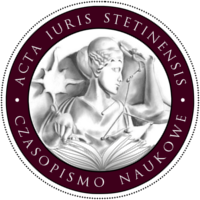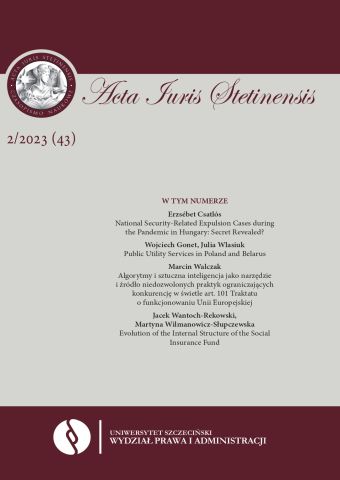






| Authors: |
Piotr
Buława

Akademia Śląska |
| Keywords: | zoning fee local plan claim for damages urban sprawl surcharge |
| Data publikacji całości: | 2023 |
| Page range: | 17 (9-25) |
| Downloads ?: | 137 |
| 1. | Bill J., Buława B., Świerzawski J., Mental Health and the City in the Post-COVID-19 Era, „Sustainability” 2021, nr 13 (14). |
| 2. | Bitner M., Chojna-Duch E., Grzybowski M., Chowaniec J., Karwat P., Kornberger--Sokołowska E., Lachowicz M., Litwińczuk H., Modzelewski W., Radzikowski K., |
| 3. | Supera-Markowska M., Ślifirczyk M., Tetłak K., Waługa M., Prawo finansowe. Prawo finansów publicznych. Prawo podatkowe. Prawo bankowe, Warszawa 2017. |
| 4. | Buława B., Ostenda A., Uwarunkowania demograficzne. Mieszkalnictwo na wsi, „Przegląd Komunalny” 2020, nr 11. |
| 5. | Czaja-Hliniak I., Opłata planistyczna jako dochód własny gminy, „Casus” 2007, nr 3. |
| 6. | Czaja-Hliniak I., Postulaty zmian regulacji opłat adiacenckich i opłaty planistycznej, w: G. Leszewski (red.), Opłaty samorządowe w Polsce – problemy praktyczne, Białystok 2010. |
| 7. | Czaja-Hliniak I., Prawnofinansowa instytucja dopłat jako forma pozapodatkowych danin publicznych, Kraków 2006. |
| 8. | Gądek L., Interpelacja nr 11987 do ministra infrastruktury i budownictwa w sprawie bezzasadnego utrzymywania opłaty planistycznej, 19.04.2017, Sejm Rzeczpospolitej Polskiej, www.sejm.gov.pl/sejm8.nsf/InterpelacjaTresc.xsp?key=2B3E8102. |
| 9. | Nowak M.J., Opłata planistyczna w świetle koncepcji „przenoszenia wartość”, „Nieruchomości” 2021, nr 2. |
| 10. | Różańska A., Pojęcie „zbycia” w postępowaniach w sprawie naliczenia opłaty planistycznej, „Nieruchomości” 2014, nr 11. |
| 11. | Sulczewska K., Opłata planistyczna oraz opłata adiacencka – uzasadnienie aksjologiczne i analiza porównawcza, „Studia Prawno-Ekonomiczne” 2014, nr 92. |
| 12. | Szymczak M. (red.), Słownik języka polskiego, t. 1: A–K, Warszawa 1978. |
| 13. | Śleszyński P., Kowalewski A., Markowski T., Legutko-Kobus P., Nowak M., The Contemporary Economic Costs of Spartial Chaos: Evidence from Poland, „Land” 2000, nr 9. |
| 14. | Śleszyński P., Markowski T., Kowalewski A., Studia nad chaosem przestrzennym, „Studia KPZK” 2018, t. 182. |